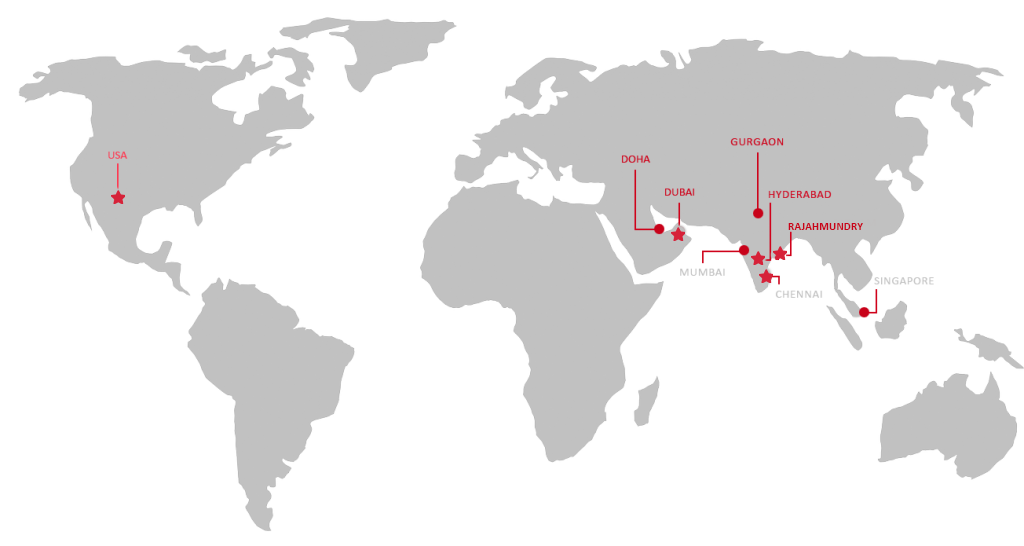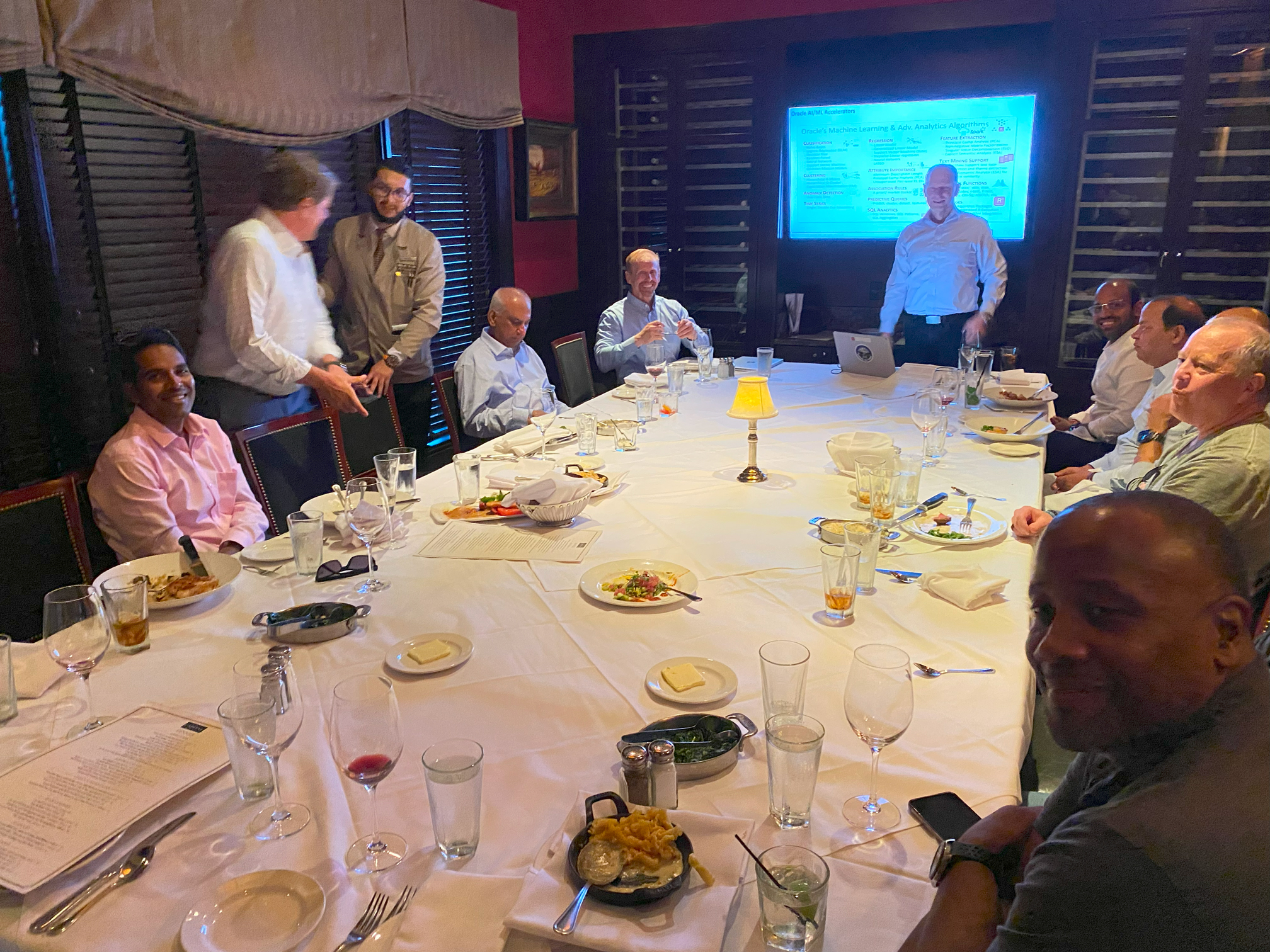Privacy Policy
The present document, entitled “Privacy Statement” (hereinafter referred to as the “Statement”), provides a comprehensive overview of the manner in which INFOLOB Global collects, processes, and shares personal data that is provided by individuals or organizations. Moreover, this document serves as a guide for the personal data-associated rights that pertain to users.
INFOLOB Global, including its affiliates and subsidiaries, collectively referred to as “INFOLOB”, recognizes and places a high value on the protection of the personal data shared by its users.
The scope of this Statement extends to all users of the INFOLOB website, customers of INFOLOB who utilize its services, vendors, individuals who participate in any marketing or recruitment activities, events, and other stakeholders who engage in any transaction involving INFOLOB, where personal information is collected, used, or shared.
User Data Collected by INFOLOB:
INFOLOB will only collect personal data about the User if the User voluntarily provides such information. This personal data is collected during the User’s interactions with INFOLOB, whether it be through business-associated interactions or online interactions, including on INFOLOB’s websites. This information is necessary for INFOLOB to conduct its business, provide services to customers, and optimize its service offerings.
INFOLOB may collect, use, store, and transfer various types of personal data, which are classified as follows:
- Identity Data, which includes the User’s first and last name
- Contact Data, which includes the User’s address, email address, and telephone numbers
- Marketing and Communications Data, which includes the User’s preferences for receiving marketing communications from INFOLOB (and authorized third parties) and the User’s communication preferences
- Public Personally Identifiable Information (PII), which is easily accessible from public sources such as phonebooks, the Internet, and corporate directories. This may include the User’s visiting card, business telephone number, and business mailing or email address
In what manner is the personal data of users gathered?
INFOLOB generally acquires personal data pertaining to employees, clients, and representatives when they choose to engage with us, make use of our services, express an interest, or apply for a job. The type of data collected by INFOLOB and/or accessible to us is dependent on the nature and context of the user’s interaction with INFOLOB, and in the case of INFOLOB’s clients, the type of service they receive from us. INFOLOB does not request or collect any personal information that is irrelevant or unnecessary for providing services to the user. Furthermore, INFOLOB affirms that we do not participate in any form of data mining with third parties.
INFOLOB may utilize the personal data provided by the User for the following specific purposes only:
- To engage in activities related to INFOLOB’s member services, such as sending crucial updates, meeting invitations, and other important information
- To assess and process job applications for those who have applied for a position with INFOLOB
- To comply with INFOLOB’s legal or regulatory obligations
- To verify the User’s identity and entitlements to INFOLOB’s products and services, particularly when the User contacts INFOLOB or accesses its services
- To provide and manage services and payments
- To send statements and invoices and collect payments.
- To provide commercial quotes
- To offer technical and customer support
- To receive feedback on INFOLOB’s services
- To enhance the User’s website and product experience, as well as to create more effective communications informed by product subscriptions and/or collected data
INFOLOB assures that it uses personal data in strict compliance with applicable laws.
INFOLOB utilizes personal data solely for necessary objectives.
The accompanying chart provides clarification on the intentions behind INFOLOB’s collection and utilization of the User’s personal data.
| Purpose/Instance | Rationale |
|---|---|
| Managing INFOLOB’s contractual and/or employment relationship with the User. | Necessary for the performance of a contract to which User is a party. |
| Recruitment. | As an employer, INFOLOB collects User’s personal information in order to manage and carry out the recruitment process and User’s employment with INFOLOB. |
| Facilitating communication with the User (including in case of emergencies, and to provide User with requested information). | To ensure proper communication and emergency handling within the organization. This kind of collection includes collection of basic contact information of relevant stakeholders. |
| Operating and managing INFOLOB business operations. | To ensure the proper functioning of INFOLOB business operations and optimise INFOLOB service offerings. |
| Complying with legal requirements. | This is a legitimate purpose as INFOLOB is bound by and is subject to all applicable laws and legal mandates. |
| Monitoring User’s use of INFOLOB systems (including use of INFOLOB website). | To avoid compliance related issues and protecting the standards of INFOLOB service offerings, ensuring that they meet the legal requirements and industry standards. |
| Improving the security and functioning of INFOLOB website, networks and information. | To ensure that User receives an excellent user experience and INFOLOB networks and information are secure. |
| Undertaking data analytics, i.e. applying analytics to business operations and data to describe, predict and improve business performance within INFOLOB and/or to provide a better user experience. | To ensure the proper functioning of INFOLOB business operations and optimise INFOLOB service offerings. |
| Marketing INFOLOB products and services to User. | To ensure the proper functioning and growth of INFOLOB business operations. However, any kind of collection for this purpose will be subject to User’s consent and privacy rights. |
| Customers billing address, email address, and telephone numbers and prospective clients information. | For performance of contract. |
Purposes for which INFOLOB may share personal data belonging to the User:
INFOLOB shares the User’s personal data with the User’s consent and/or to carry out any transaction and/or provide any service that the User has authorized or requested. INFOLOB also shares any such personal data with its wholly owned subsidiaries and affiliates whenever necessary, to optimize INFOLOB’s service offerings.
Further, INFOLOB may also share User’s personal data with its vendors/suppliers/third parties wherever necessary on strict need to know basis, ensuring that such parties are bound by the privacy principles detailed herein and are bound by strict confidentiality obligations.
Lastly, INFOLOB shares personal data when required by applicable laws/legal mandates and/or in order to respond to any legal process, including but not limited to protection of the rights and property of INFOLOB and its customers.
How INFOLOB protects personal data belonging to the User:
INFOLOB is committed to protecting its User’s personal data. INFOLOB has put in place safeguards including appropriate technologies, policies, and contractual arrangements, so that the data that INFOLOB possesses about the Users is protected from unauthorized access and improper use.
The safeguards INFOLOB have put in place to protect User’s personal data include the following Technical and Organizational Measures:
- Organizational management is responsible for the development, implementation, and maintenance of INFOLOB’s Privacy program.
- External Audits will be conducted annually once. Any gaps identified in the audit, will be addressed with corrective action for information security and the cloud operations.
- Maintain Information security policies and make sure that policies and measures are regularly reviewed and where necessary, improve them
- Communication with INFOLOB applications utilizes cryptographic protocols such as TLS to protect information in transit over public networks.
- Data security controls which include logical segregation of data, restricted (e.g. role-based) access is used.
- Logical access controls designed to manage electronic access to data and system functionality based on authority levels and job functions.
- Password controls designed to manage and control password strength, and usage including prohibiting users from sharing passwords.
- Physical Access Control:
- Unauthorized persons shall be prevented from gaining physical access to premises, buildings or rooms where data processing systems are located which process and/or use Personal Information.
- Measures: All Datacentres adhere to strict security procedures enforced by guards, surveillance cameras, access control mechanisms and other measures to prevent equipment and Datacentre facilities from being compromised. Only authorized representatives have access to systems and infrastructure within the Datacentre facilities. To ensure proper functionality, physical security equipment (e.g. cameras, etc.) are maintained on a regular basis. In detail, the following physical security measures are implemented at all Datacentres:
- INFOLOB protects its assets and facilities using the appropriate means based on a security classification conducted by security department.
In general, buildings are secured through access control systems (smart card access system). - Change management procedures and tracking mechanisms designed to approve and monitor all changes to INFOLOB technology and information assets.
- Incident / problem management procedures design to allow INFOLOB investigate, respond to, mitigate and notify of events related to INFOLOB technology and information assets.
- Vulnerability assessment, patch management, and threat protection technologies and scheduled monitoring procedures designed to identify, assess, mitigate and protect against identified security threats, viruses and other malicious code.
Network and Information Security
INFOLOB maintains a variety of physical, electronic, and procedural safeguards to protect personal information. Also, uses encryption technologies to protect account information when customers viewing the bill on Website or via email. Customers should be aware that INFOLOB has no control over the security of other sites on the Internet that they might visit, interact with to buy the products or services.
Customers should keep the user name, password or other access information safe to protect against unauthorized access to account information and services. And customers must adopt strong passwords that others may not guess easily.
User’s rights pertaining to its personal data and privacy:
Subject to applicable laws, all Users have the following rights:
- Right to obtain information regarding the processing of personal information and access to the personal information which INFOLOB holds.
- Please note that there may be circumstances in which INFOLOB are entitled to refuse requests for access to copies of personal information as per applicable laws. In particular, information that is subject to legal professional privilege will not be disclosed other than to INFOLOB affiliates/subsidiaries and as authorised by such affiliates/subsidiaries.
- Right to request INFOLOB to correct any personal information if it is inaccurate or incomplete.
- Right to request INFOLOB to erase personal information in certain circumstances. Please note that there may be circumstances where INFOLOB may erase personal information but INFOLOB is legally entitled to retain it.
- Right to object to and request that INFOLOB restricts, its processing of personal information in certain circumstances. Again, there may be circumstances where the User objects to, or asks INFOLOB to restrict, it’s processing of personal information but INFOLOB is legally entitled to refuse that request.
- Right to withdraw consent, although in certain circumstances it may be lawful for INFOLOB to continue processing without User consent if permissible under law.
- And any other rights that User may hold as the owner of such data as per applicable laws.
Content
All hosting services provided by INFOLOB may be used for lawful purposes only. Transmission, storage, or presentation of any information, data or material in violation of any Indian law is prohibited. This includes, but is not limited to copyrighted material, trade secret, material in our opinion is obscene, not in public interest, opposed to public policy or is an invasion of privacy of any person or entity.
All pornographic content and sex-related merchandising is prohibited on all INFOLOB servers. This includes sites that may infer sexual content or links to adult content elsewhere. INFOLOB will be the sole arbiter in determining violations of this provision. Also prohibited are sites that promote any illegal activity or present content that may be damaging to INFOLOB servers or any other server on the internet. Links to such materials are also prohibited. Examples of unacceptable content or links: Pirated software Hacker programs or archives Warez sites, INFOLOB will be the sole arbiter as to what constitutes a violation of this provision.
Materials and Products
- We will exercise no control whatsoever over the content of the information passing through the network or on the Customer’s websites.
- We make no warranties or guarantees of any kind, whether expressed or implied for the service provided and also disclaims any warranty of merchantability or fitness for particular purpose and will not be responsible for any damages that may be suffered by the Customer, including loss of data resulting from delays, non- deliveries or service interruptions or gaps by any cause or errors or omissions of the Customer.
- INFOLOB is not responsible for any loss, erasure, or corruption of Customer’s data or files whatsoever unless agreed otherwise
- Use of any information obtained by way of INFOLOB is at the Customer’s own risk, and we specifically deny any responsibility for the accuracy or quality of information obtained through our services.
Changes to this Privacy Policy
INFOLOB reserves the right to amend, alter, or modify this Privacy Statement at any time in its sole and absolute discretion. Any amendment or modification is effective when posted on public domain and any use of INFOLOB services after the posting of a modification or amendment will be considered deemed acceptance of those modifications.
Webmaster
Any Security breaches, bugs and updates on the website, please inform the Webmaster.
Cookie Policy
At INFOLOB.com (“We”, “us”, “our”), we strive to honour the privacy and security of any data we collect from visitors using our website, whilst we act as a personal data Controller under relevant data protection rules and regulations. Our website uses cookies, in combination with pixels, local storage objects, and similar devices (collectively, “cookies” unless otherwise noted) to distinguish you from other users of the website. This helps us provide you with a good experience, improve our service, and to personalize ads and content to you while you use the website.
This Cookie Policy describes the types of the cookies we use on the website and our purposes for using them.
If you have questions about this Cookie Notice, please contact us at [email / web form link]. For a more complete description and list of the cookies that we currently use on the website, please review our Cookie List found in section 5 of this document. For more information about our privacy practices, please review our privacy policy: URL of INFOLOB. If you have any questions or comments regarding this notice or data privacy, please contact us at [email protected].
Please read this Cookie Notice carefully for details about why we use cookies and the information they collect from and about you.
Cookie Definitions
A cookie is a small file of letters and numbers that we store on your browser or the hard drive of your device, which is like computer memory. This helps deliver users with the most relevant web experiences for his/her benefits.
First and third-party cookies: whether a cookie is ‘first’ or ‘third’ party refers to the domain placing the cookie.
- First-party cookies are those set by a website that is being visited by the user at the time (e.g. cookies placed by our website domain).
- Third-party cookies are cookies that are set by a domain other than that of the website being visited by the user. If a user visits a website and another entity sets a cookie through that website, this would be a third-party cookie.
Persistent cookies: these cookies remain on a user’s device for the period of time specified in the cookie. They are activated each time that the user visits the website that created that particular cookie.
Session cookies: these cookies allow website operators to link the actions of a user during a browser session. A browser session starts when a user opens the browser window and finishes when they close the browser window. Session cookies are created temporarily. Once you close the browser, all session cookies are deleted.
What Cookies Do We Use and Why?
Generally, the website uses cookies to distinguish you from other users of the website. This helps us to provide you with a good experience in terms of relevance, performance, security, and usability when you browse the website and also allows us to improve it. The cookies we may use on the website may be categorized as follows:
- Strictly necessary
- Performance
- Functionality
- Targeting
Some cookies may fulfil more than one of these purposes.
‘Strictly Necessary’ cookies let you move around the website and use essential features like secure areas. Without these cookies, we cannot provide the requested services.
We use these Strictly Necessary cookies to:
- Identify you as being logged in to the website and to authenticate you
- Make sure you connect to the right service on the website when we make any changes to the way it works
- For security purposes
- Make sure you connect to the right service on the website when we make any changes to the way it works
If you prevent these cookies, we can’t guarantee how the website or the security on the website will perform during your visit.
‘Performance’ cookies collect information about how you use the website, e.g. which pages you visit, and if you experience any errors. These cookies do not collect any information that could identify you and are only used to help us improve how the website works, understand the interests of our users and measure the effectiveness of our advertising purposes to deliver the most relevant offerings to you.
We use performance cookies to:
- Carry out web analytics: Provide statistics on how the website is used
- Perform affiliate tracking: Provide feedback to affiliated entities that one of our visitors also visited their site
- Obtain data on the number of users of the website that have viewed a product or service
- Help us improve the website by measuring any errors that occur
- Test different designs for the website
Some of our performance cookies are managed for us or by third parties committed to deliver the best experiences for your needs.
‘Functionality’ cookies are used to provide services or to remember settings to improve your visit or sessions within the website.
We use ‘Functionality’ cookies for such purposes as:
- Remember settings you’ve applied such as layout, text size, preferences and colors
- Remember if we’ve already asked you if you want to fill in a survey
- Remember if you have engaged with a specific component or list on the website so that it won’t repeat
- Show you when you’re logged in to the website
- To provide and show embedded video content
Some of these cookies are managed for us by third parties
‘Targeting’ cookies are used to track your visit to the website, as well other websites, apps and online services, including the pages you have visited and the links you have followed, which allows us to display targeted ads to you on the website.
We may use targeting cookies to:
- Display targeted ads within the website.
- To improve how we deliver personalized ads and content, and to measure the success of ad campaigns on the website.
When do we require your consent
All cookies require your consent.
We request your consent before placing them on your device. You can give your consent by clicking on the appropriate button on the banner displayed to you. If you do not wish to give consent or wish to withdraw your consent to any cookies at any time, you will need to delete, and block or disable cookies via your browser settings; see below for more information on how to do this. Please note that disabling these cookies will affect the functionality of the website, and may prevent you from being able to access certain features on the website.
How to Delete and Block our Cookies
Most web browsers allow some control of most cookies through the browser settings. However, if you use your browser settings to block all cookies (including strictly necessary cookies), you may not be able to access all or parts of the website. Unless you have adjusted your browser setting so that it will refuse cookies, our system will issue cookies as soon as you visit the website.
Changing your Cookie Settings. The browser settings for changing your cookies settings are usually found in the ‘options’ or ‘preferences’ menu of your internet browser. In order to understand these settings, the following links may be helpful. Otherwise you should use the ‘Help’ option in your internet browser for more details.




